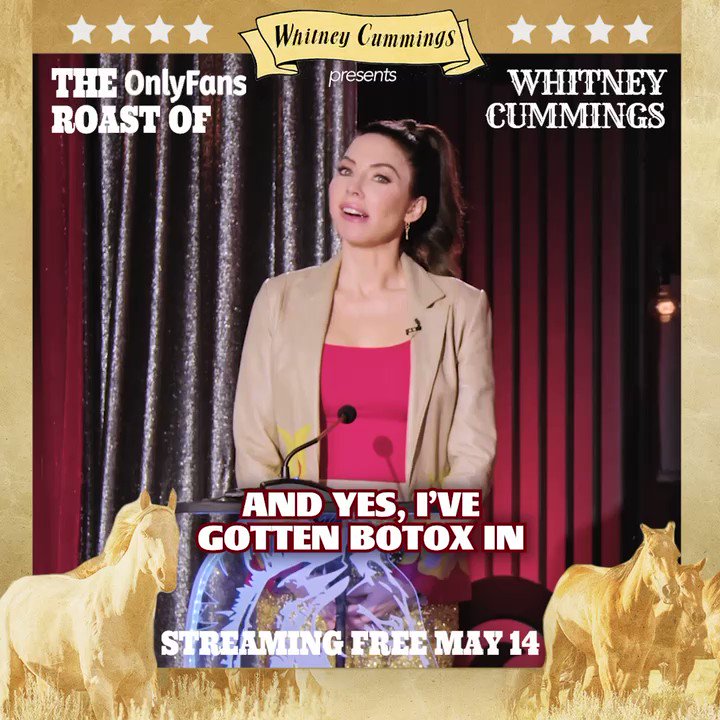Let’s dive straight into this conversation about Whitney Cummings transgender. It’s a topic that’s been buzzing around, and it’s time we unpack it with honesty, respect, and understanding. As we navigate the world of identity, acceptance, and representation, Whitney Cummings has become a central figure in discussions surrounding gender and comedy. So, grab your favorite drink, settle in, and let’s talk about the elephant in the room—or should I say, the conversation everyone’s having!
Now, before we dive deeper, let’s address the elephant in the room. Whitney Cummings isn’t exactly known as a transgender individual, but the topic of transgender issues has come up in her work, comedy, and public statements. She’s been vocal about her own struggles with identity, mental health, and societal expectations. This makes her a fascinating figure to explore when discussing the intersection of gender, humor, and representation.
As we explore this topic, it’s crucial to approach it with empathy and an open mind. The world is changing, and so are our conversations. Whether you’re here to learn more about Whitney Cummings, her views on transgender topics, or just to gain a deeper understanding of the complexities of identity, you’re in the right place. Let’s get started.
Read also:Idr Personality Tests Unlock Your Inner Potential Today
Who is Whitney Cummings? A Quick Bio
Before we dive into the specifics of Whitney Cummings transgender-related discussions, let’s take a step back and talk about who she is. Whitney Cummings is not just a comedian; she’s a powerhouse in the entertainment industry. From her breakout role in "2 Broke Girls" to her stand-up specials and late-night appearances, Cummings has carved out a unique niche for herself in comedy.
Early Life and Career
Whitney Cummings was born on November 9, 1979, in Baltimore, Maryland. She grew up in a creative family, which might have influenced her decision to pursue comedy. Cummings started her career in stand-up comedy, quickly gaining recognition for her sharp wit and unfiltered humor. Her ability to tackle sensitive topics with humor has made her a favorite among audiences who appreciate edgy comedy.
Here’s a quick glance at her early life and career:
- Born in Baltimore, Maryland
- Grew up in a creative household
- Began stand-up comedy in her early 20s
- Rose to fame with her role in "2 Broke Girls"
Whitney Cummings Transgender Views: The Controversy
Now, let’s talk about the elephant in the room—Whitney Cummings’ views on transgender topics. Cummings has been vocal about her thoughts on gender and identity, often sparking heated debates. Her stand-up routines and public statements have drawn both praise and criticism, depending on how you interpret her words.
What She’s Said
In her comedy, Cummings has tackled topics like gender fluidity, societal norms, and the complexities of identity. Some have interpreted her jokes as transphobic, while others see them as a reflection of her own struggles with identity. Cummings herself has addressed these criticisms, stating that her humor is meant to provoke thought and conversation rather than harm.
Let’s break it down:
Read also:Why A Lump On Puppy Belly Could Be A Sign Of Something Bigger
- Cummings has joked about the fluidity of gender in her stand-up specials.
- She’s been criticized for perceived transphobic comments, but she defends her humor as satire.
- Her views on transgender topics have sparked debates in the comedy community and beyond.
The Role of Comedy in Discussing Transgender Issues
Comedy has always been a powerful tool for discussing sensitive topics. Whitney Cummings isn’t the first comedian to tackle transgender issues, and she won’t be the last. But her approach has sparked important conversations about how we address gender and identity in entertainment.
Why Comedy Matters
Comedy can break down barriers, challenge norms, and open minds. When done right, it can be a catalyst for change. Cummings’ humor, while controversial, has brought attention to the complexities of identity in a way that sparks dialogue. Whether you agree with her or not, her work has undoubtedly contributed to the larger conversation about transgender rights and representation.
Here’s why comedy matters:
- It challenges societal norms and encourages critical thinking.
- It can bring attention to underrepresented voices and issues.
- It has the power to unite or divide, depending on how it’s used.
Whitney Cummings’ Impact on Transgender Representation
While Whitney Cummings isn’t a transgender individual herself, her work has had a significant impact on how transgender issues are discussed in mainstream media. Her comedy has both challenged and supported the transgender community, depending on how you view her jokes and statements.
Positive Contributions
Cummings has used her platform to bring attention to the struggles faced by transgender individuals. By addressing these issues in her comedy, she has helped normalize conversations about gender and identity. Her willingness to tackle tough topics has encouraged others to do the same, fostering a more open and inclusive dialogue.
Here’s how she’s contributed positively:
- She’s brought attention to transgender issues through her comedy.
- She’s encouraged open dialogue about identity and societal norms.
- She’s used her platform to amplify underrepresented voices.
The Challenges of Representation
Representation in media is a double-edged sword. On one hand, it’s crucial for visibility and acceptance. On the other hand, it can perpetuate stereotypes or misunderstandings if not handled carefully. Whitney Cummings’ approach to transgender representation has been both praised and criticized, highlighting the complexities of this issue.
Addressing Misunderstandings
Cummings has faced criticism for her handling of transgender topics in her comedy. Some argue that her jokes perpetuate harmful stereotypes, while others believe her humor is a reflection of her own struggles with identity. Regardless of where you stand, it’s important to acknowledge the impact her words have on the transgender community.
Here’s how we can address misunderstandings:
- Encourage open dialogue and empathy.
- Listen to the voices of those directly affected by the issues being discussed.
- Strive for accurate and respectful representation in media.
Whitney Cummings Transgender: The Bigger Picture
When we talk about Whitney Cummings and transgender issues, we’re really talking about something bigger—the evolving landscape of identity and representation in media. Cummings’ work is a microcosm of the larger conversation happening in society today. As we navigate these discussions, it’s important to approach them with empathy and an open mind.
The Future of Representation
The future of representation in media is bright, but it requires effort and intentionality. As we move forward, it’s crucial to prioritize accurate and respectful portrayals of transgender individuals. This includes listening to their voices, amplifying their stories, and creating space for diverse perspectives.
Here’s what the future could look like:
- More inclusive representation in media.
- A greater emphasis on empathy and understanding.
- A world where all identities are celebrated and respected.
Conclusion: Where Do We Go From Here?
Whitney Cummings transgender-related discussions have sparked important conversations about identity, representation, and the power of comedy. While her views may be controversial, they’ve undoubtedly contributed to the larger dialogue about transgender issues in media. As we move forward, it’s essential to approach these discussions with empathy, respect, and a willingness to learn.
So, what’s next? Take a moment to reflect on what you’ve learned today. Leave a comment, share this article with a friend, or explore more content on this topic. Together, we can create a world where all voices are heard and all identities are celebrated.
Table of Contents
- Who is Whitney Cummings? A Quick Bio
- Whitney Cummings Transgender Views: The Controversy
- The Role of Comedy in Discussing Transgender Issues
- Whitney Cummings’ Impact on Transgender Representation
- The Challenges of Representation
- Whitney Cummings Transgender: The Bigger Picture
- The Future of Representation
- Conclusion: Where Do We Go From Here?
Let’s keep the conversation going. What are your thoughts on Whitney Cummings and transgender issues? Share your insights in the comments below!


